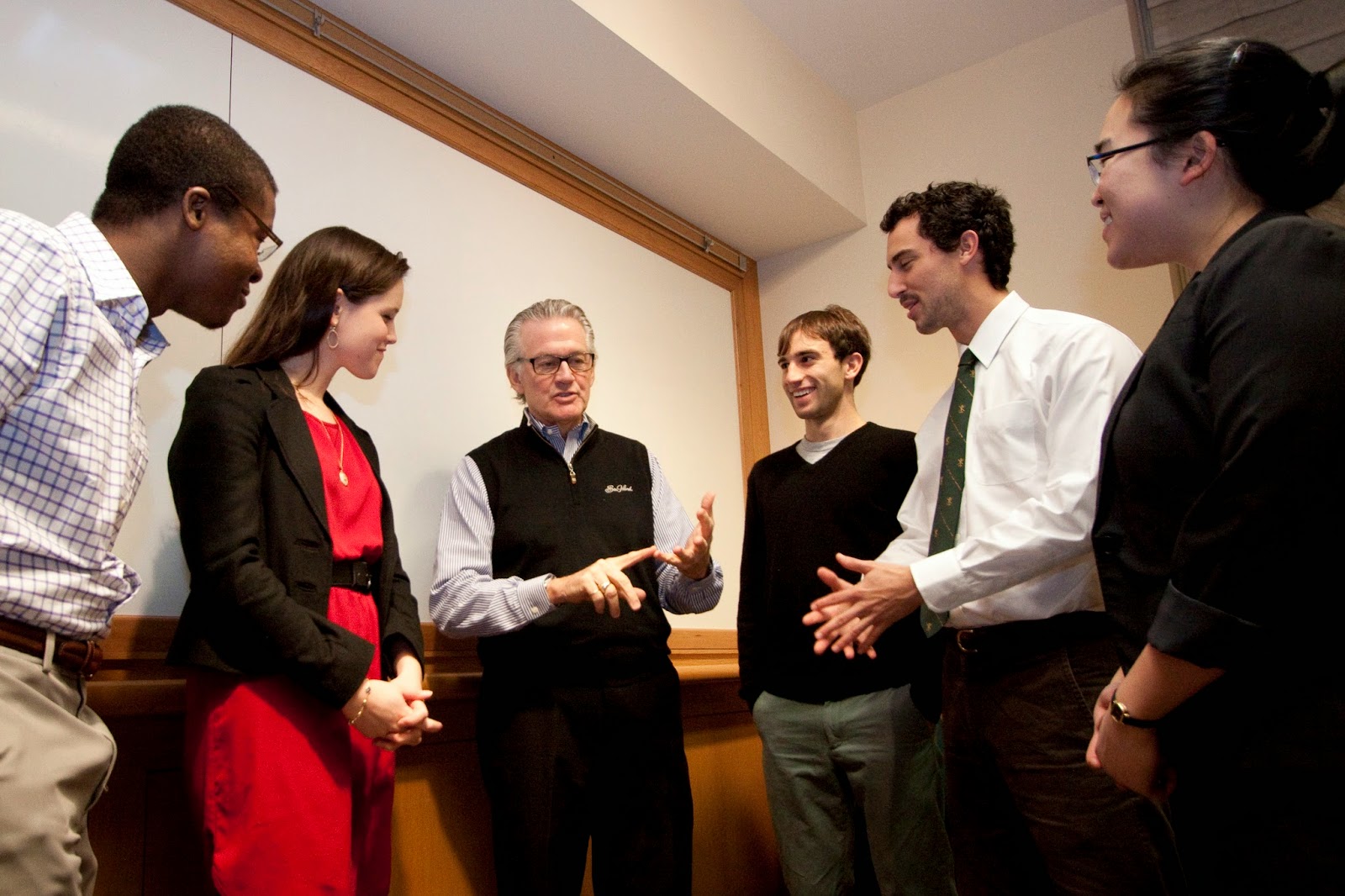- Public Policy
- Leadership
- Funding
- News & Events
- About the Center
Back to Top Nav
Back to Top Nav
Back to Top Nav
Back to Top Nav
This ongoing series explores sessions of the Rockefeller Leadership Fellows (RLF) program. RLF provides fellows with resources in leadership theories and practical skills. Selected their Junior Spring, these Seniors take part in the workshops, dinner discussions, and team-building exercises as they gain a better understanding of the qualities and responsibilities necessary for leaders and successful leadership styles.
The Rockefeller Leadership Fellows were fortunate to have a session on February 19th with Curt Welling '71, Tu'77. Welling recently joined Dartmouth's Tuck School of Business as a senior fellow in its Center for Global Business and Government and its Center for Business & Society. He previously served as the president and chief executive officer of AmeriCares after having had an extensive career in the investment banking and securities industry. Welling received both his master's of business administration and bachelor's degree from Dartmouth College and his law degree from Vanderbilt University Law School. His session focused on the factors that mediate our perception and on the importance of perception in leadership.
 |
| Rockefeller Center Board of Visitors Chair Curt Welling '71, Tu'77 meets with Dartmouth students. |
The session started uniquely, as Welling asked each Fellow to introduce themselves in turn by our name, major, and future plans. Throughout, he attentively listened and offered encouraging words about our future plans. It was inspiring to be reminded of the diverse passions of my peers.
Welling’s lecture then began with a Ghandi quote, "Man is the the product of his thoughts. What he thinks, he becomes." This thematic idea permeated throughout Welling’s session; we as leaders are limited by our own perception. Welling structured the lecture on the whole around three main topics: filters, bubbles, and ladders.
Filters, Welling explained, are the lenses through which we perceive the world, developed by the sum of our assumptions and experiences. Our information bubbles result from the biased, limited information that we take in as a function of media culture and our immediate environments. Mental ladders reflect the process by which we convert raw data into a belief system. The three are inextricably linked and influence each other regularly.
We finished the session by asking Welling pointed questions to help elucidate his journey toward self-awareness, allowing him to perform some self-reflection along with us. The Fellows seemed to walk away from the session either chatting excitedly amongst themselves or lost deep in self-reflective thought.
-Written by Luke Katler '15, 2014-2015 Rockefeller Leadership Fellow